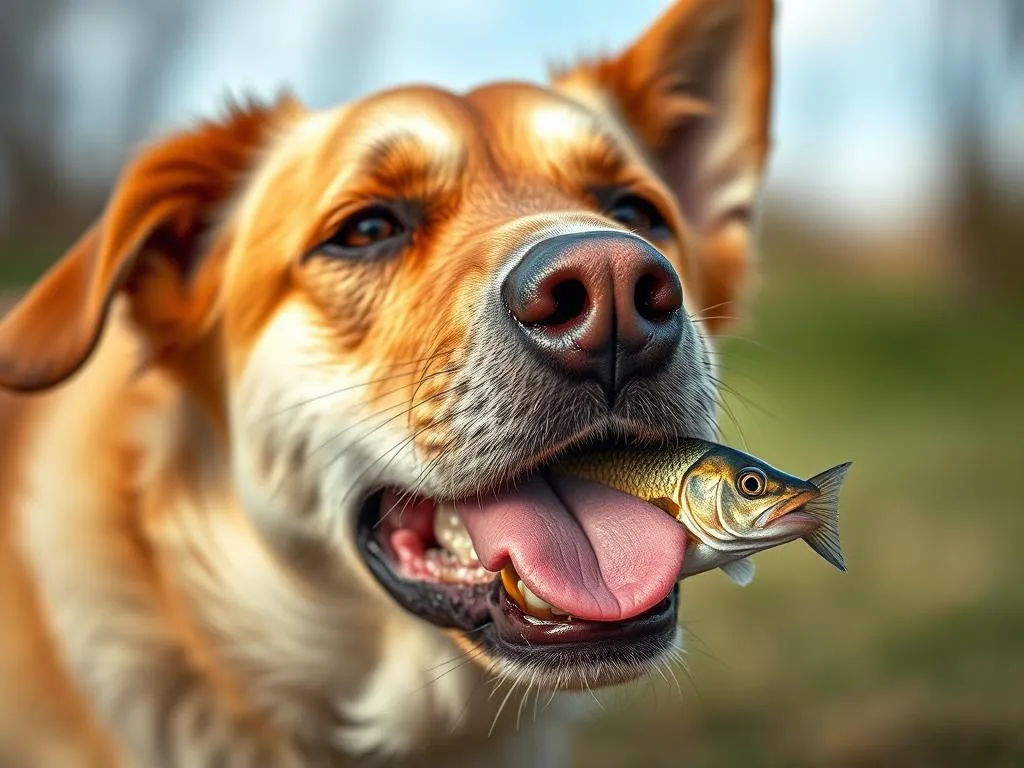
Introduction
As pet owners, ensuring the health and well-being of our furry companions is paramount. Regular health care for dogs involves monitoring their physical condition, diet, and overall behavior. One of the common concerns that many dog owners encounter is the odor of their dog’s breath. While occasional unpleasant breath can be typical, a persistent foul odor, especially one that smells like fish, can indicate underlying health issues that need to be addressed promptly.
In this article, we will delve into the reasons behind why does my dog’s breath smell like fish, exploring various potential health conditions, dietary influences, and the importance of maintaining good dental hygiene for your canine friend.
Understanding Dog Breath Odor
What is Normal Dog Breath?
Normal dog breath can vary slightly depending on factors such as age, diet, and overall health. Generally, healthy dog breath should not be overly pungent or offensive. Instead, it may have a mild, characteristic odor that reflects the dog’s diet. Factors influencing a dog’s breath odor include:
- Diet: Foods rich in certain flavors or ingredients can contribute to breath scent.
- Age: Older dogs may develop worse breath due to dental issues.
- Health Condition: Overall health, including dental and gastrointestinal health, significantly affects breath.
Common Reasons for Bad Breath in Dogs
Bad breath, medically known as halitosis, is a common problem among dogs. It can result from several factors, including poor oral hygiene, underlying health issues, or dietary choices. Common reasons include:
- Dental Disease: Plaque and tartar buildup can lead to gum disease.
- Diet: Certain foods, especially those high in fat or protein, can contribute to bad breath.
- Health Conditions: Conditions like diabetes or kidney disease can manifest in foul breath.
Recognizing persistent bad breath is crucial, as it may indicate a more severe underlying issue that requires veterinary intervention.
The Specifics of Fishy Breath in Dogs
Potential Health Issues Associated with Fishy Breath
When a dog’s breath smells distinctly fishy, it can be a sign of specific health concerns. Here are some medical conditions associated with this particular odor:
- Dental Disease
- Gingivitis and Periodontal Disease: Inflammation of the gums and the surrounding tissues can lead to a fishy smell.
-
Bacterial Infections: An overgrowth of bacteria in the mouth can produce foul odors.
-
Gastrointestinal Problems
- Stomach Issues: Conditions such as acid reflux or gastritis can cause the breath to carry a fishy scent.
-
Intestinal Parasites: Worm infestations and other parasites can lead to changes in breath odor.
-
Liver Disease
-
Symptoms of liver issues may include vomiting, weight loss, and a noticeable change in breath odor, potentially producing a fishy smell.
-
Kidney Disease
- Known as uremic breath, this condition results from the accumulation of waste products in the bloodstream when the kidneys are not functioning correctly, often leading to a fish-like odor.
If your dog exhibits this type of breath, it’s essential to consult a veterinarian for a thorough examination and diagnosis.
Other Contributing Factors
In addition to medical conditions, certain lifestyle factors can also contribute to fishy breath:
- Diet: If your dog is on a fish-based diet, the natural odors from the food may influence their breath. Foods rich in omega-3 fatty acids can sometimes contribute to a fishy aroma.
- Poor Dental Hygiene: Inadequate oral care, such as infrequent tooth brushing, can lead to plaque buildup and bad breath.
- Foreign Objects: Sometimes, foreign objects lodged in the mouth or between teeth can lead to infections and foul odors.
Diagnosing the Cause of Fishy Breath
When to See a Veterinarian
If you notice your dog has persistent fishy breath, it’s critical to seek veterinary care. Signs that warrant immediate attention include:
- Sudden changes in breath odor
- Accompanied symptoms like vomiting, diarrhea, or lethargy
- Difficulty eating or chewing
- Excessive drooling or oral discomfort
Early diagnosis is vital for effective treatment, so do not hesitate to consult your veterinarian.
What to Expect During the Vet Visit
During a veterinary visit, you can expect:
- Physical Examination: The vet will conduct a thorough physical exam, paying close attention to the mouth, teeth, and gums.
- Dental Examination: A closer inspection of dental health may be performed, potentially leading to a recommendation for dental cleaning.
- Diagnostic Tests: Depending on the findings, diagnostic tests may include blood tests, urine tests, or imaging studies to assess liver and kidney function.
Treatment Options for Fishy Breath
Dental Care
One of the most effective methods to combat bad breath, particularly fishy breath, is through proper dental care:
- Regular Dental Check-ups: Schedule routine dental visits for professional cleaning and assessment.
- Home Dental Care Tips: Regularly brush your dog’s teeth using toothpaste specifically designed for dogs. Incorporate dental chews and toys that promote oral health.
Medical Treatments
If the cause of the fishy breath is due to a medical condition, treatment will vary:
- Medications for Infections: Antibiotics may be prescribed if bacterial infections are present.
- Dietary Adjustments: If gastrointestinal issues are identified, dietary changes or special digestive aids may be recommended.
Home Remedies and Preventive Care
While medical treatments are essential for underlying health issues, there are also home remedies and preventive measures you can implement:
- Natural Remedies: Some dog owners find that adding parsley to their dog’s diet can help freshen breath naturally.
- Dietary Changes: Introduce a balanced diet rich in fibers and nutrients that promote good oral health.
- Regular Vet Check-ups: Consistent veterinary visits are crucial for maintaining your dog’s overall health.
Preventive Measures
Maintaining Oral Hygiene
Good oral hygiene is critical in preventing fishy breath and promoting dental health. Consider these practices:
- Daily Tooth Brushing: Aim to brush your dog’s teeth daily or at least a few times a week.
- Dental Health Products: Use dental chews, water additives, and dental wipes to help reduce plaque buildup.
Choosing the Right Diet
A balanced diet plays a significant role in maintaining oral health. Key points include:
- Balanced Nutrition: Ensure your dog’s diet is well-rounded, containing essential vitamins and minerals.
- Foods to Avoid: Steer clear of overly fatty or fish-heavy foods that may contribute to bad breath.
Regular Vet Check-ups
Routine veterinary assessments are vital for preventing health issues:
- Routine Health Assessments: Regular check-ups help catch potential problems early.
- Vaccinations and Preventive Medications: Keep vaccinations up to date and discuss preventive medications for parasites with your vet.
Conclusion
In summary, addressing why does my dog’s breath smell like fish is crucial for your dog’s health and well-being. Persistent fishy breath can indicate underlying medical issues, and it’s important not to overlook this symptom. By maintaining good dental hygiene, providing a balanced diet, and ensuring regular veterinary check-ups, you can help promote your dog’s overall health and happiness. Taking proactive steps will not only improve your dog’s breath but also enhance their quality of life.
Consulting your veterinarian at the first sign of unusual breath odor can lead to early diagnosis and treatment, ultimately supporting your furry friend’s health for years to come.









